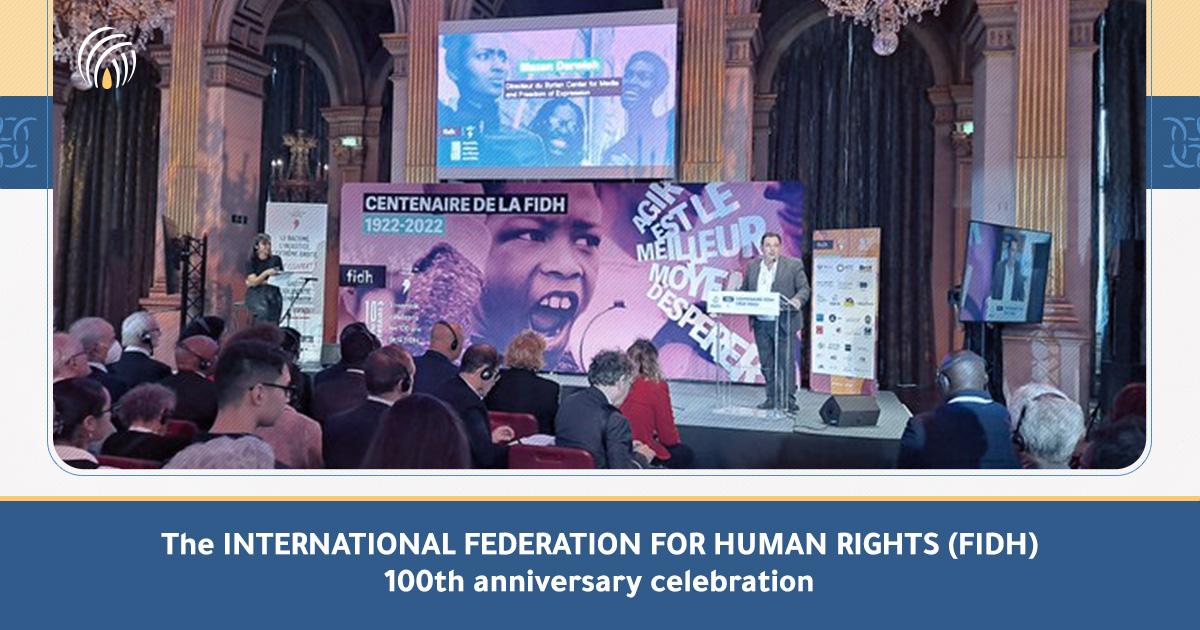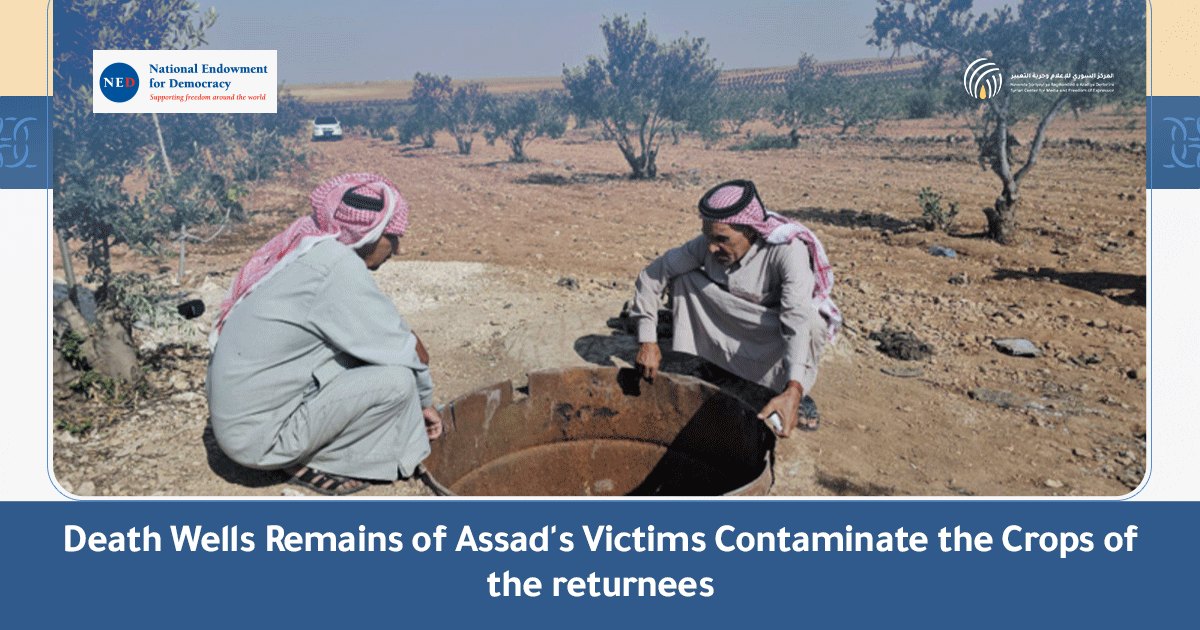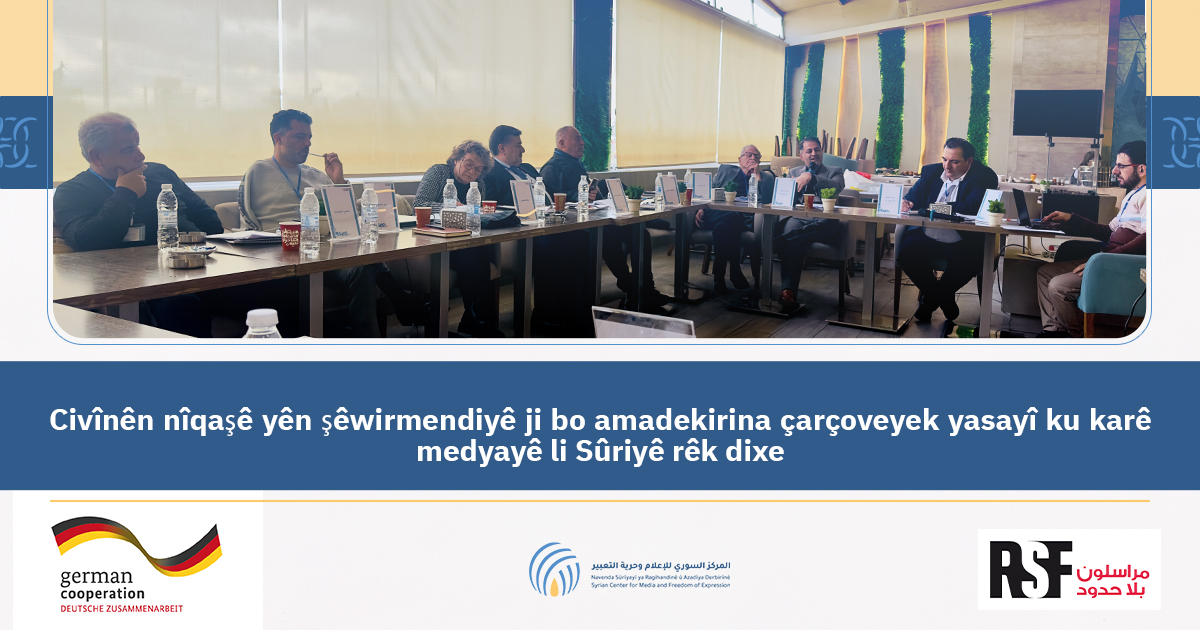Today the International Federation for Human Rights (FIDH) celebrates its 100th anniversary. It’s a big number, yet it’s not just a number. It is a century of struggle for human rights values…a century of life of member organizations – employees – people… And I am proud to be one of them, as the Federation has shared nearly a quarter of a century of its life in my lifetime until now…
In 2000, a group of activists including myself, contributed to the re-launch of the Committees for the Defense of Democracy, Freedoms, and Human Rights in Syria (CDF). The only human rights organization in Syria – at that time – which had ceased to function after the massive wave of arrests that affected its founders in 1991.
As we discussed the re-launch of the Committees, we decided to go public with our work and activities this time, we even reviewed our strengths and talked about the changing local reality in Syria and the universality of human rights, and while we were doing this, my old and senior colleagues would always say, “We are also members of the International Federation for Human Rights (FIDH)”.
At the time, I didn’t quite know what that meant, and what the Federation was, but this sentence gave me a kind of reassurance.
After the Damascus Spring had been suppressed in 2002, I was preparing to travel to Nancy in France for a family visit. The head of the committees, “Aktham NU’AYSA”, said to me in a firm tone: “Go to Paris, the Federation is there, and ask them for support for the committees”.
“Finally, I will go to the Federation.”…I have been imagining the place all the time…It must be one of the historic castles near Paris…”Do they wear special garb like the Knights of the Temple?”
I got to the address an hour early… It was a narrow alley, and the facade of the building was white and pink ceramic -my God, how ugly this building is- although I tried to relax in the cafe next door, realizing that they don’t wear special garbs, but My tension did not subside.
I entered the building and was greeted by “Stephanie DAVID”, director of the Middle East office, and “Idris EL YAZAMI”, the Secretary-General, had quickly joined us.
“I am “Mazen DARWISH” from the Committees for the Defense of Democracy Freedoms and Human Rights in Syria (CDF), we need support,” I was talking like a robot…
Idris looked at me calmly and said, “What does that mean? We also need support.” So I looked to Stephanie to save me, but she was barely trying to hide her smile.
Months after this meeting, the federation had begun training /30/ Syrian human rights defenders in Cairo, Egypt, on human rights principles. And in a result our statements, our reports, and our human rights work at (CDF) became better, as well as my subsequent meetings with Stephanie and Idris… became even better.
At the beginning of 2004, we were preparing for a sit-in in front of the Syrian Parliament in Damascus, against the state of emergency that had been in place since 1963, we had announced that the sit-in would take place on March 8 – the same day the state of emergency was declared – which is celebrated every year, as it is the day the ruling regime came to power, this was a major challenge by a human rights organization to an authoritarian regime in its stronghold, and on the anniversary of its victory day.
We were determined as well as afraid, especially since the Syrian political forces considered the sit-in to be suicide and refused to participate. Threats from leading figures in the security services were increasing as the desired day approached, to the point that three days before it we started discussing the cancellation of the sit-in… We felt like we were left alone in every sense of the word… Until we received that call from FIDH’s conference that was being held in Ecuador, carrying the following message “we are all with you”… and we went out to the sit-in…
In 2009 I felt as if my world had lost gravity, and there was not enough oxygen left for me to breathe… It is true that at that time I had been released from prison, and that my trial before the Military Criminal Court had ended peacefully, having tried to reproduce the experience of the Moroccan Kingdom in transitional justice in Syria, however, State Security closed my office in Damascus, and confiscated everything. I was banned from traveling, I was prohibited from practicing law, and from working, many symbolic figures of the democratic movement in Syria were detained, and I had the feeling that no one cared.
Souhayr BELHASSEN, head of the Federation at the time, had a broken voice when she called me: “Do you know a good restaurant for dinner in Damascus?” Indeed, the next day I was having dinner with Souhayr and Idris in the old city of Damascus, and our next meals were at the houses of our detained colleagues with their families.
Before my release from prison in 2015, I was taken to the office of the Minister of Justice in Damascus to meet him, his office was at the same building that houses the State Security Court, and then the Terrorism Court, it seems that the repeated detention, torture, and enforced disappearance for nearly four years were not enough for them. Rather, a final message had to be delivered to me, “Despite all your long work in human rights, all your international relations and acquaintances, no one asked about you, and no one cared about you” he said to me with apparent nervousness. I smiled and said to myself: “My colleagues, the Federation, and its ties must have really hurt you”.
I left Syria at the end of 2015. And I didn’t delay going to that narrow alley, where the building with the ugly facade was.
The Cadre of the Federation were waiting for me with all the warmth and affection I so badly needed, and soon I sat down in that office with Antoine BERNARD and Clémence BECTARTE, facing the question: “Well, what shall we do now?” The answer was not delayed: “We can use universal jurisdiction and trans-regional jurisdiction to keep the file of justice and accountability for the crimes committed in Syria on the table” … and this was what…
In May of this year, I was preparing to go to Ukraine on a fact-finding mission, to find out about the war crimes committed by Russian aggression, and as we were going to the hot spots where military actions were taking place, I was asked to fill out a form that includes -in addition to specifying the procedures in case of my death and the burial method- to give two names to contact in case of emergency.
In these cases, one usually chooses names of family members, and I did not hesitate to write the name of “Clémence BECTARTE”, the Frederation’s attorney, on that form…
100 years isn’t just a number… It’s a century of wars, persecution, extermination, discrimination, violence, and abuse everywhere on this small planet… But it is also a century full of struggle, determination, and fight to uphold the values and principles of human rights everywhere on the same small planet…
We don’t have huge castles, and we don’t have armies and garbs like knights, but we will continue the fight and we will be victorious…





